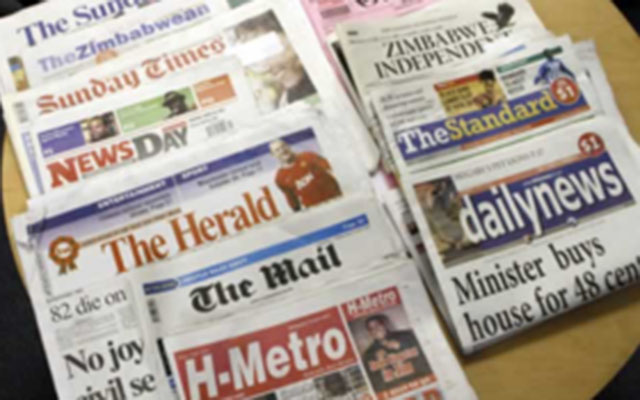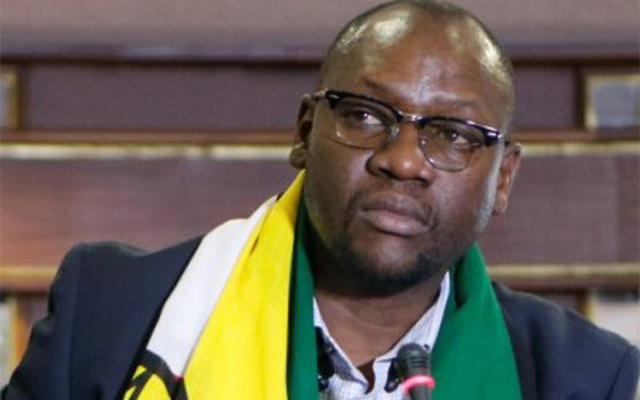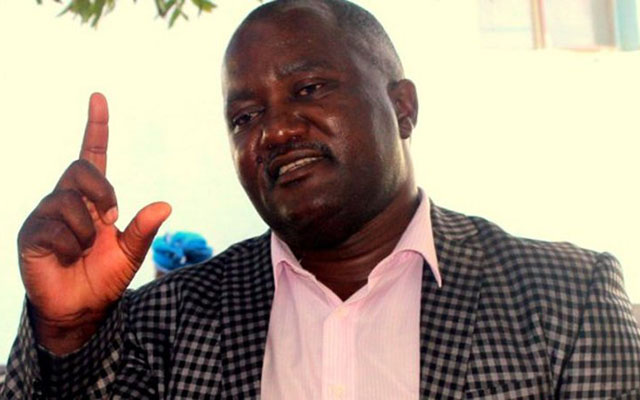Journalists: God-sent or devil’s advocates?

Stephen Mpofu Correspondent
Journalists in Africa and elsewhere around the globe last week celebrated World Press Freedom Day with marches, or meetings with stakeholders, including governments, as what happened in Zimbabwe, to underscore the significance of the fourth estate in people’s lives.
In 1993, the United Nations General Assembly declared May 3 as what is also known as Press Freedom Day and to remind governments to respect and uphold free expres- sion.
That African journalists under the auspices of the United Nations Educational, Scientific and Cultural Organisation (UNESCO) at a seminar in Namibia in 1991, came up with the Windhoek Declaration on world press freedom, leading up to the General Assembly’s landmark endorsement of World Press Freedom, is something about which scribes on our continent should hug themselves.
But that some African governments continually renege on the press freedom declaration is something about which the continent should recoil in shame. Premised on neutrality, goodness and justice as forming a tripod on which both democracy and press freedom should stand balanced, is it not ironic that those three values are often flagrantly violated by the writers themselves who fought jealously to guard them so that their product is not only balanced, but goes to great lengths in safeguarding the rights of all people, newsmakers’ own rights included. However, the scenario in many countries today is wont to take away one’s breath in utter disgust. Consider the following, for in- stance.
In some so-called “more civilised” states democracy has either become a facade or recedes under draconian policies to become stable mates with tyranny in countries where journalists are systematically rusticated behind bars for purveying the views of organisations regarded by those in power as being anathema because of their opposition.
Some countries in the Middle East are a typical example of how journalists are regularly stalked by irate governments for the political pot, as though they were wild game, for the neutrality or objectivity of their journalese.
In some so-called long time examples of democracy in the West, journalists are scurrying away for cover, fearing for their lives and professional rights after being condemned by those in power allegedly for publishing “fake news”, which — who knows — might be true and unpalatable to the extent of making the political leaders uncomfortable in their cushy offices.
The general professional perception about journalism is that its practitioners play a pivotal role by informing and educating society about current events as well as providing entertainment.
What that pivotal role suggests, therefore, is that journalists pass as the eyes and ears of governments on one side of the isle and of the general public on the side so that wilful, malevolent bias in their coverage of events in favour of one side against the other becomes unwarranted duplicity that cuts across the spirit of good, balanced journalism. Thus, Zimbabwean scribes had better take note of, and eschew, this unethical brand of journalism for their profession to thrive unscathed.
Fundamentally, African governments should not listen only to what titillates their ear, while dismissing out of hand press reports that throw light on wrong doings of some of their leaders as exposed by the press whose role is also to shine light on such things as corruption by those holding government positions in addition to other misdeeds that potentially besmirch the image of a government as a whole and might eventually cause its down- fall.
This is because as its eyes and ears, a government is obliged to regard patriotic, professional journalists as fellow travellers with the governance of a country. It also should follow, therefore, that as partners on a nation’s journey forward, journalists who wilfully cover up the truth of any dangers lurking in, or caused by, the public at large and which have the potential to destroy a government, should realise that they too are wont to suffer the consequences of their wilful negligence and fake patriotic behaviour.
Also, politically-malnourished elements on our continent who take the UN’s “free expression” advocacy on its face value by using their press lackeys to promote violent change in their country, for instance, so they may fill the vacancy created themselves are a danger to their states and should stand warned that, because violence begets violence, they stand to test the bitterness of their own pill as long as enduring amity in their country remains an unknown value for them.
Thus, press freedom suggests, above all else, that in plying their trade journalists should consider their country’s freedom, sovereignty, peace and stability as being at the core of their professional pur- suits.
Sensational, dangerous journalism should be thrown out the windows of African newsrooms so that reporters and their editors are regarded and respected as God-sends rather than as the devil’s advocates.
But when all is said and done, it ought to be realised by all that if that tribe known as journalists did not exist around the globe each society would be like a tree that sheds leaves in the winters of its life with no shoots blooming in its spring, so that it becomes as good as dead.







Comments